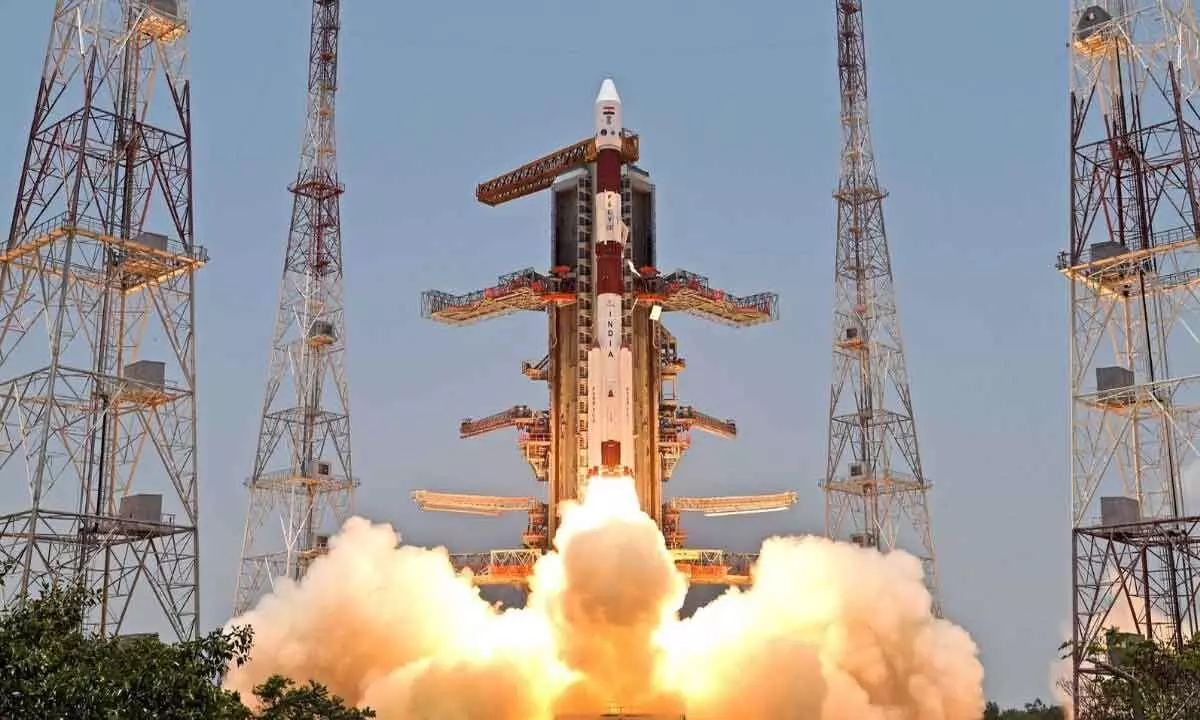Congress congratulates ISRO for Aditya L1's successful launch
Share :

Congress on Saturday congratulated the ISRO team on the successful launch of Aditya-L1, saying it is another stupendous achievement and recalled the journey of the Aditya journey that started under the UPA government.
Congress on Saturday congratulated the ISRO team on the successful launch of Aditya-L1, saying it is another stupendous achievement and recalled the journey of the Aditya journey that started under the UPA government.
Taking to X, formerly Twitter, Congress president Mallikarjun Kharge said, "Lead me from darkness to light. We are indebted and grateful to our scientists, space engineers, researchers and our hard-working personnel at ISRO for the successful launch of AdityaL1 - Solar Observation Mission."
"Together, we celebrate their success and honour them with our gratitude. India started the journey to the Sun in 2006, when our scientists proposed a solar observatory with a single instrument for the Sun. In July 2013, ISRO selects the seven payloads for the Aditya-1 mission, by now renamed the
Aditya-L1 mission. In November 2015, ISRO formally approved Aditya-L1," he said recalling the beginning of India's solar mission.
"After the glorious successes of Chandrayaan Missions (First- 2008, Second -2019 and Third - 2023) and the Mangalyaan Mission (2013), our path towards placing a satellite to study the sun became a bit more secure. Nations build capacity of science, technology and research not in just a few years, but decades altogether, and India's success in space research and exploration is a shining example of that unflinching courage and commitment. Despite all obstacles, we have prevailed."
"Our tribute to the vision, ingenuity and the vigorous dedication of our legendary scientists and countless researchers for this historic accomplishment. Science, as an instrument of development, welfare and positive change, remains our magna carta. We hope these triumphs would keep inspiring our younger generation and instill a deeper scientific temper in our people," Kharge added.
Congress General secretary Jairam Ramesh posted, "Today's launch of Aditya-L1 is another stupendous achievement of ISRO and for India! While saluting ISRO once again, it is worthwhile recalling the recent timeline for Aditya-L1 to understand the continuity in the ISRO saga."
He said that in 2006, scientists with the Astronomical Society of India and the Indian Academy of Sciences proposed the concept of a solar observatory with a single instrument. Then in March 2008, scientists shared the proposal with the Indian Space Research Organisation (ISRO).
"December 2009: ISRO approves Aditya-1 project with single instrument. April 2013: After former Chairman U.R. Rao's major intervention ISRO issues an "announcement of opportunity," calling on the scientific community for proposals for more scientific instruments (payloads). June 2013: ISRO reviews scientific proposals received.
"July 2013: ISRO selects the seven payloads for the Aditya-1 mission by now renamed the Aditya-L1 mission. November 2015: ISRO formally approves Aditya-L1," the Congress Rajya Sabha MP said.
The remarks from the Congress leader came after India launched the first spacecraft to sun.
India’s Polar Satellite Launch Vehicle-C57 (PSLV-C57) lifted off with the country’s Aditya-L1 spacecraft to study the Sun, on Saturday morning.
The PSLV-XL variant rocket carries the 1,480.7 kg Aditya-L1 spacecraft as its sole passenger that will study the solar activities.
The 44.4 metre tall PSLV-C57 rocket with a lift off mass of 321 ton carrying Aditya-L1 -- named after the Sun God in Hindu mythology -- blasted off from the second launch pad at the Satish Dhawan Space Centre (SDSC) here at 11.50 a.m.







